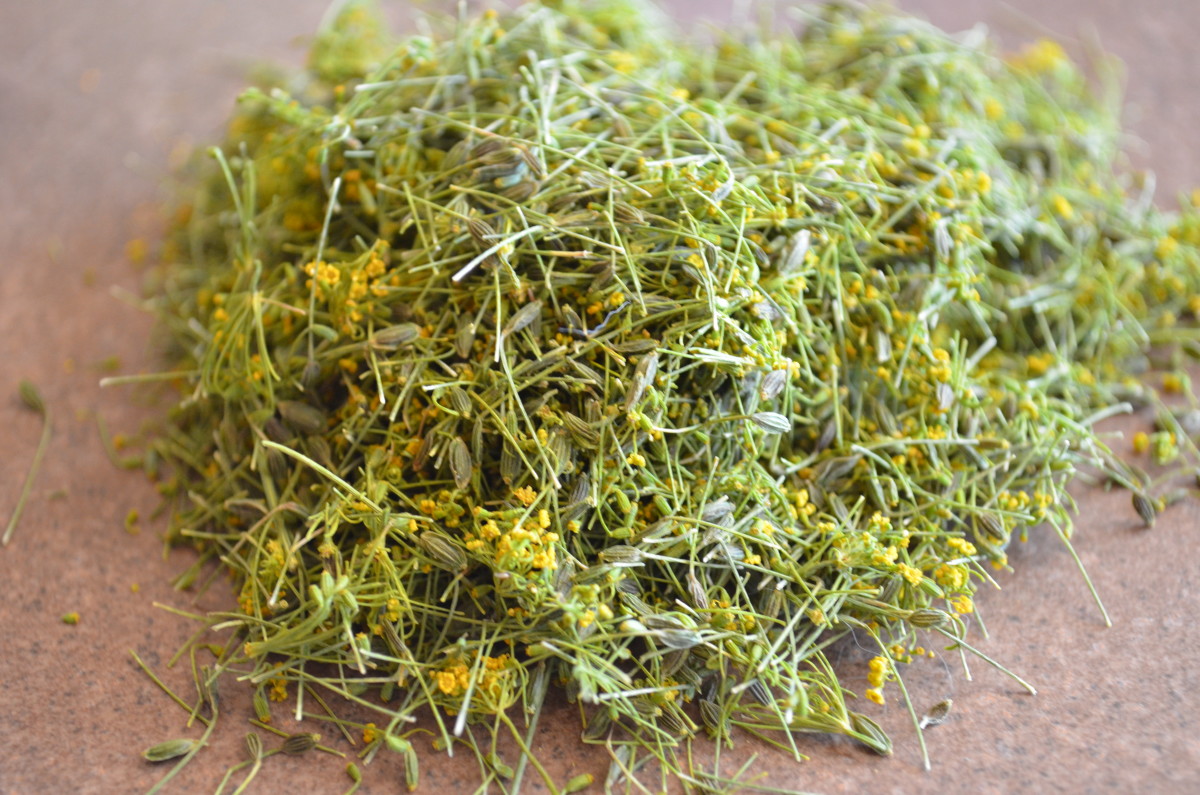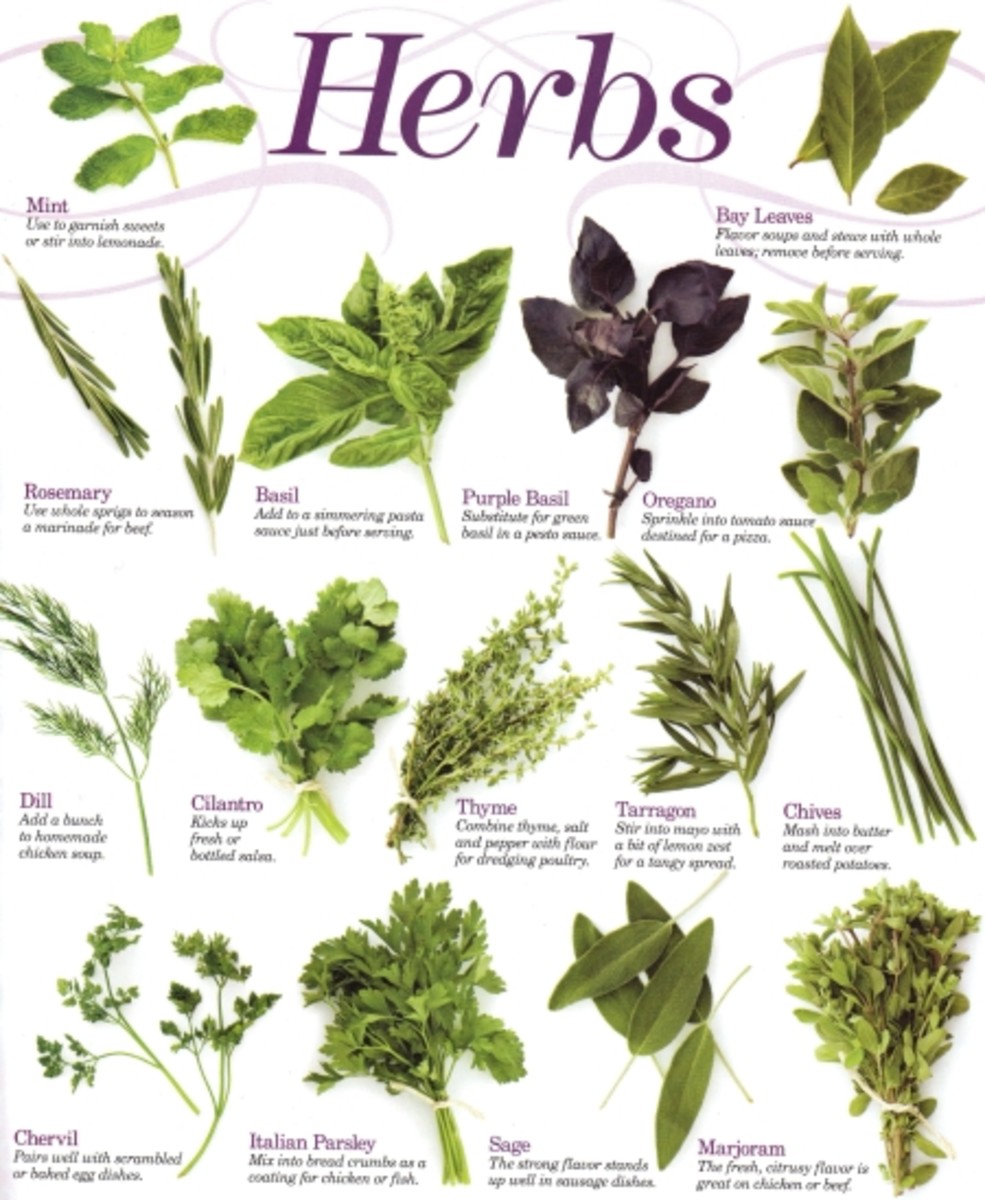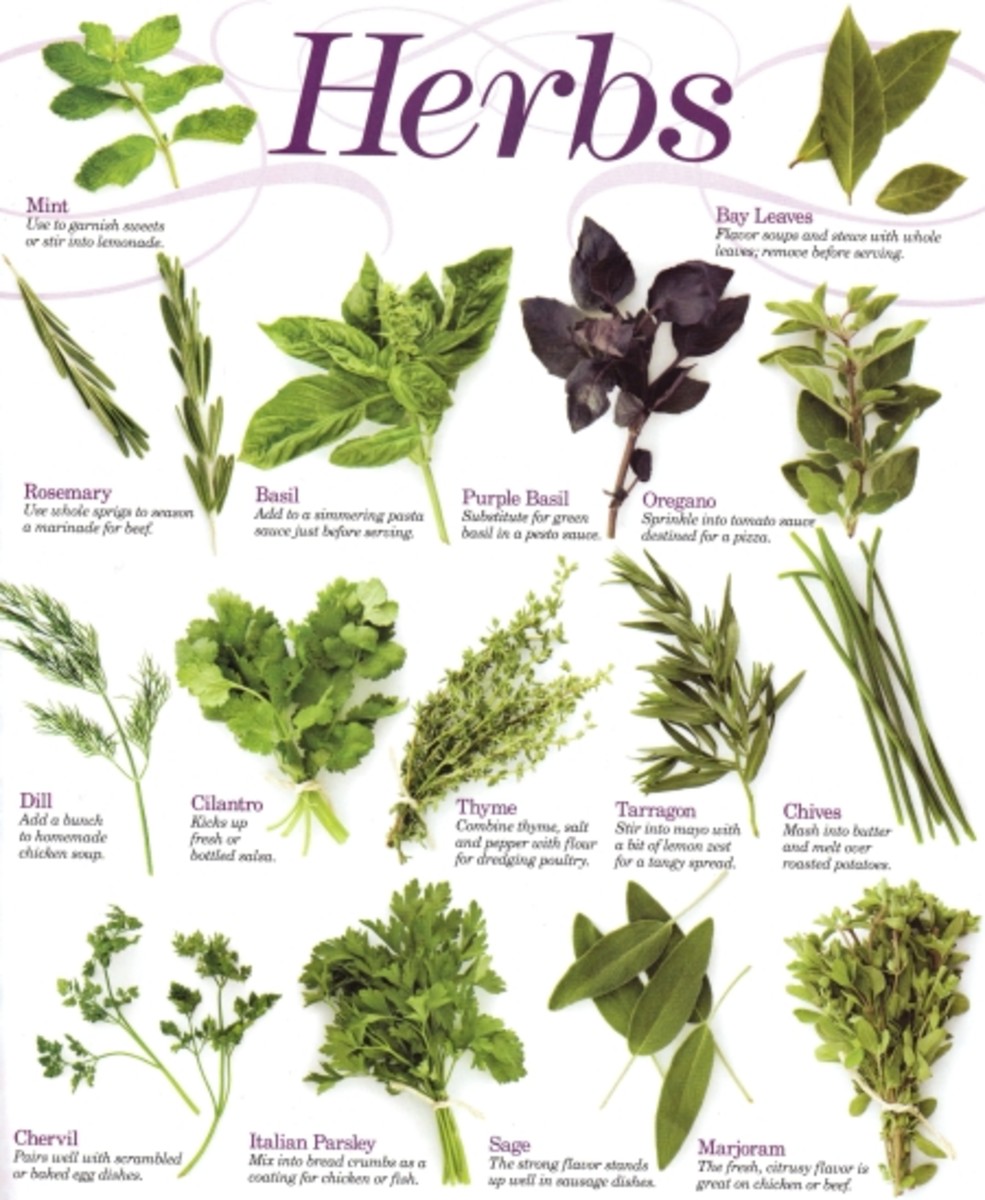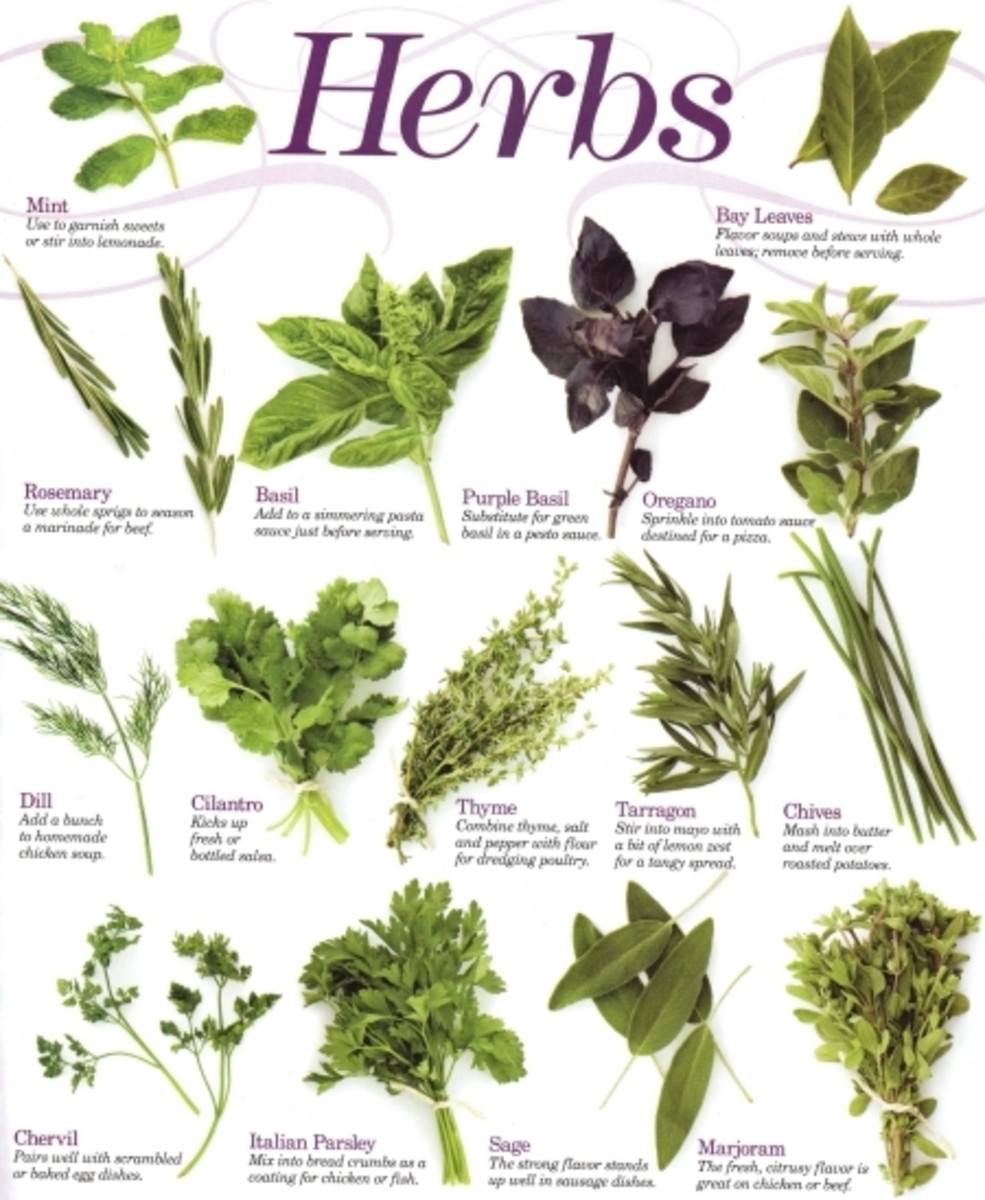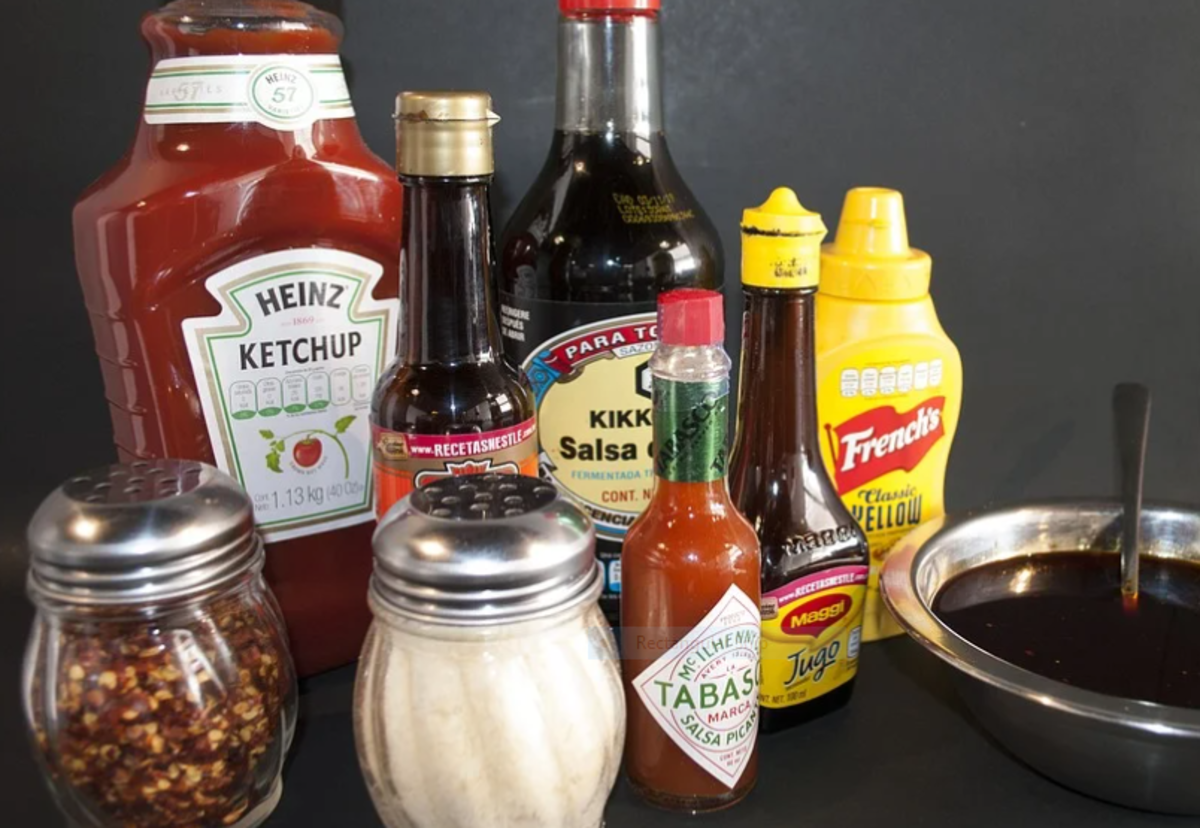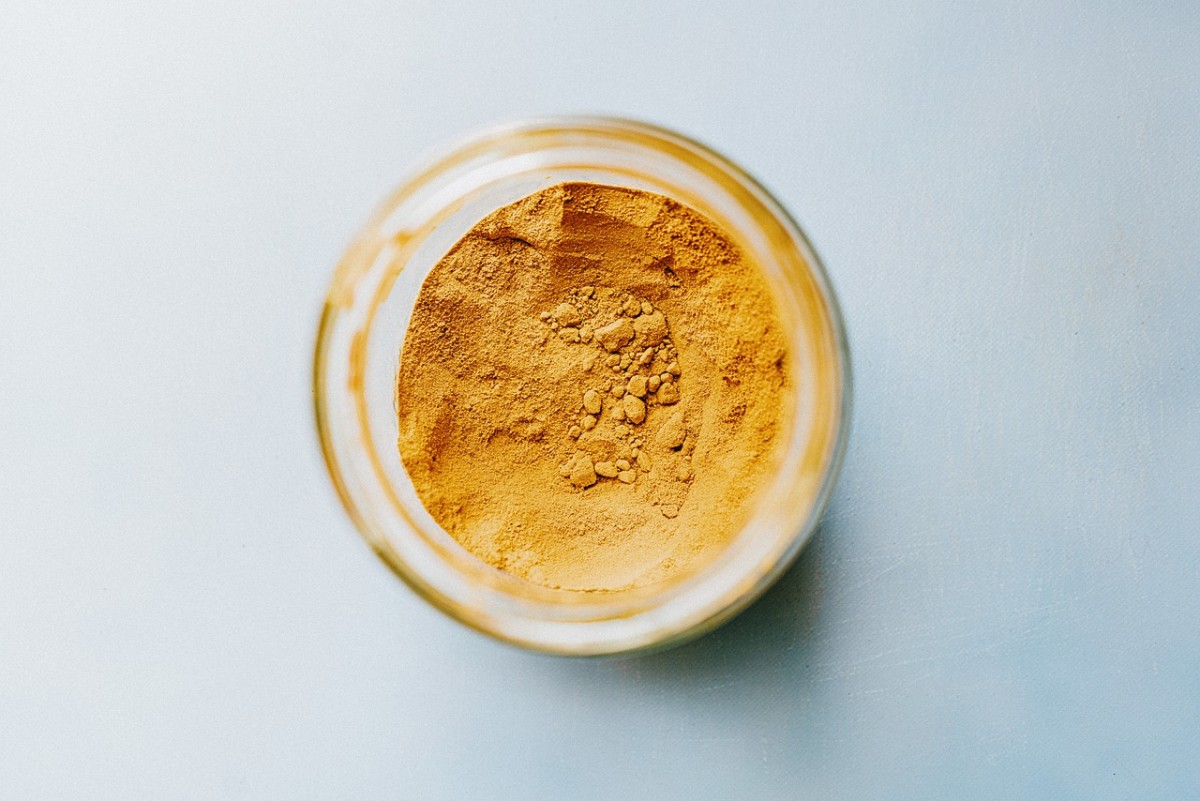Tips and Measurements for Substituting Dried and Fresh Herbs in Recipes
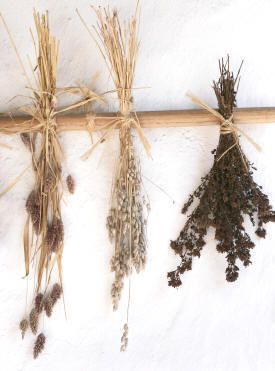
A large percentage of the recipes that you will use in your cooking will require that you include some herbs. The recipe will specify whether you should use fresh herbs or dried herbs. Can you substitute one for the other? And how do you make that substitution? Follow the tips in this article to get a basic understanding of when and how it is okay to substitute dried herbs for fresh herbs and vice versa.
You Can't Always Substitute Dried Herbs for Fresh Herbs
In most cases, you won't have any problems substituting dried herbs in recipes that call for fresh herbs. However, there are exceptions to this rule. If a fresh herb is a major ingredient in the taste of the recipe then you do not want to substitute dried herbs for fresh herbs. For example, a tabbouleh recipe will require large bunches of fresh mint and fresh parsley. This makes up a major portion of the recipe. Likewise, if you were to make a tomato, basil and cheese sandwich then the basil would be a large portion of that recipe. In this examples, you would get a totally different taste for the dish if you tried to use dried herbs. The rule of thumb to keep in mind here is that if a recipe calls for fresh herbs that are just to add seasoning then it's okay to substitute dried herbs but if the fresh herbs are a main ingredient of the recipe then you don't want to make that type of substitution.
It's Generally Fine to Substitute Fresh Herbs for Dried Herbs
You shouldn't have any problems doing the reverse substitution. If a recipe calls for dried herbs and you want to use fresh herbs, there is typically no reason not to do so as long as you use the proper amount (see below). A major exception to this rule is when a recipe calls for ground ginger; fresh ginger tastes much different and often cooks differently so you want to be wary of making this substitution.
Tips for Choosing the Right Measurements when Converting Fresh and Dried Herbs
If you are going to make the substitution then you need to understand that you won't be using the same amount of fresh herbs as you would of dried herbs. This has to do with the concentration of taste which changes when you dry herbs as opposed to when you eat them fresh. The taste of dried herbs tends to be stronger so you use less dried herbs than fresh herbs. Tips for converting the measurements in recipes that you may be working with include:
- Teaspoons and tablespoons. One common and easy method of making the conversion is to change teaspoons and tablespoons in your recipes. Remember that the fresh herbs will always be the bigger number. So, if a recipe calls for two tablespoons of fresh rosemary and you are going to use dried rosemary then you would convert that amount to two teaspoons of dried rosemary. Likewise, if the recipe called for two teaspoons for dried rosemary and you want to use fresh rosemary, you would use two tablespoons instead.
- 1:3 ratio. This conversion isn't quite as simple so it's not quite as common but pickier chefs generally use a 1:3 dried:fresh ratio for converting their measurements. For example, if your recipe called for one tablespoon of dried rosemary then you would use 3 tablespoons of fresh rosemary. Interestingly, this ratio is the same as the teaspoon / tablespoon ratio but sometimes this conversion is easier to use in recipes where you aren't working with simple teaspoons and tablespoons.
- Use less then taste to add more. A smart cook will only use these conversions as a basic guide and will let taste really guide them in the kitchen. Dried herbs can very a lot in taste depending on how long they have been packaged. If you just dried your own herbs in your kitchen they are going to have a much stronger taste than if you bought them in the store a year ago. Likewise, fresh herbs vary in taste depending on how truly fresh they are. When making the substitution, add a little bit at a time and do a taste test to make sure that you're happy with the way it's coming out.
There are many different reasons that you might make the substitution of fresh herbs for dried or vice versa. Maybe you're growing fresh herbs in your kitchen and want to use them. Or maybe you bought a big bundle of fresh herbs and they'll go bad if you don't use them soon (although you could always dry them yourself and use them later). Perhaps you are traveling and it's easier to take dried herbs with you than fresh herbs. Whatever the reason, it's generally fine to make these substitutions. Here are just a few more thoughts and tips about doing so:
- Dried herbs go stale a lot faster than you might think. And yes, there's such a thing as "fresh" dried herbs. Your dried herbs should be as green as when you bought them even though they are dried. If they have faded then they aren't as fresh. They should still have a strong smell if you crush them. If they don't then they aren't as fresh. You can still use them but they may not be very flavorful and you may have to use more of them to get the same taste in your recipes.
- Adding fresh parsley to a dish that includes dried herbs will bring out more of the flavor in the dried herbs. This is a great tip especially if you like to keep fresh parsley on hand. It doesn't work with dried parsley as a substitute though!
- Properly storing both fresh and dried herbs will make the conversion for your recipes a lot more accurate. Dried herbs should be stored in airtight containers which are placed in dark, cool storage. Fresh herbs should be stored in the same manner that you store fresh cut flowers - with the stems cut off and put into a vase of water (but this vase then gets covered with plastic and stuck into the fridge). Fresh herbs can also be frozen to maintain most of their flavor.
- Fresh or Dried? cooking with herbs and spices
Fresh or Dried? Recipes and information about cooking with herbs and spices. - Substitute dry herbs & spices for fresh
Substituting dried herbs & spices for fresh - Herbs - Fresh vs Dry - Before You Bite - Supermarket Guru
Herbs come from the leaves of plants. They have been used for centuries in both cooking and as medicines. When it comes to cooking, the topic of whether herbs are the most flavorful when they are fresh or dry, is largely a matter of taste and surely - Using Fresh and Dried Herbs : Recipes and Cooking : Food Network
Can you use dried herbs instead of fresh?


